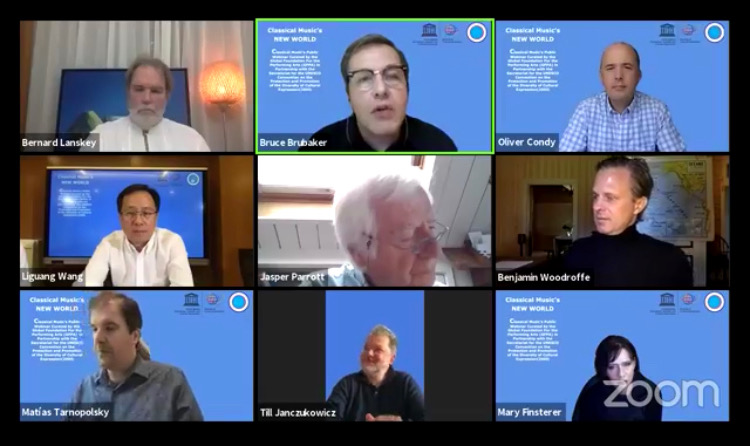Edmund Hillary and Tenzing Norgay climb Mount Everest, 1953
excerpts from my remarks as part of the webinar “ResiliArt: Classical Music’s New World” presented by the Global Foundation for the Performing Arts and UNESCO, June 22, 2020
“…Now, we need to be living music so that it matters, so that it’s useful. We are in an intense period of artistic interaction — technologically enabled. Music is a group activity.
“Music and technology, that’s a long story. The piano is a technology. The violin. When sound recording came along at the end of the 19th century, a musical product became physical, and then transmissible. The earliest recordings were not treated seriously. Recording was almost like a toy. We have two very short cylinder recordings of Brahms playing the piano. Perhaps that’s a bit like the sonically flawed webcasts of the last few weeks. Timo Andres or Igor Levit in his living room. It’s the beginning of something…
“The internet gives us the ‘music of all time — all of the time,’ on our devices, in our pocket. The word ‘music’ has come to mean sound recordings of music. That’s the global experience: constant unstoppable listening to recorded sound.
“Of course, classical musicians begin as children. And was it your choice when you were 3 years old? But now — before it’s too late — we must answer! What motivates us to play Beethoven? Too often, my middle-aged friends, pianists, have come to me with a great new idea. They say: ‘I am going to record all of Beethoven’s piano sonatas.’ I’m afraid I compare that to a wealthy person who decides to climb Mount Everest. It may be a great, personally fulfilling life experience. (Of course, you can die up there too.) But will anything be added to our collective knowledge? Is it really useful to make that expensive trek? Truthfully, it’s a fancy hobby.
“If we are experts in music we need to know about now. Imagine a scientist who said: ‘You know I only repeat the experiments of the 19th century. I’ve really worked at them. I get fantastic results.’ But is that science? That ‘scientist’ is perhaps a historian. And some believe classical music is a museum. But useful museums undergo renovation, they undergo remodeling.
“A lot of classical music is ‘authorial.’ Some might say it’s authoritarian. It’s top-down organization. The composer is fully in charge, giving us beginnings and endings. It reflects an old power structure. God told the king. The king told everybody else. Men told women. Adults told children — or beat them. Can I retain or cherish these artifacts, the symphonies, but reject their social underpinnings?
“In our businesses and sometimes in our governments we try to move toward more balanced participatory structures. And then, there’s a further generational shift… One of my piano students turned out to be a gifted conductor, after a very short period of studying conducting. I heard him lead a good performance of Schubert’s Fifth Symphony with one of the Harvard Orchestras after he became their principal conductor. I told him, ‘You could really be a conductor.’ He said: ‘I don’t want to be a conductor because I don’t like telling other people what to do.’
“In classical music education we still hear: ‘It’s a meritocracy — we only accept the best students.’ Can we believe that now? How do we assess talent? How can we be sure that when we love the playing of a prospective student, some of our reaction isn’t really: ‘Oh, that’s just like me!’”


Thank you!! For continuing to ask these questions. There may not be easy answers, but the process of inquiry and openness to change is key!
Like!! Really appreciate you sharing this blog post.Really thank you! Keep writing.